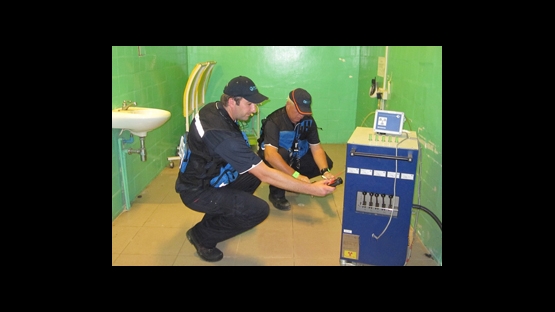If a nuclear or radiological emergency occurs, a State might need assistance responding to it, for example to detect radioactive contamination, evaluate radiological consequences, provide medical advice or initiate decontamination. The IAEA maintains the Response and Assistance Network (or RANET) to strengthen the worldwide capability to coordinate the provision of such assistance and advice under the Convention on Assistance in the Case of a Nuclear Accident or Radiological Emergency (the "Assistance Convention"). States that are registered in RANET have identified their National Assistance Capabilities, comprising qualified experts, equipment, software and materials that could be made available to assist, by request, another State in a nuclear or radiological emergency, in a timely and effective manner.
From 4 to 8 February 2013, representatives of IAEA Member States that registered National Assistance Capabilities in RANET are meeting in Vienna for a Technical Meeting convened by the IAEA's Incident and Emergency Centre. The experts will discuss the next version of the Emergency Preparedness and Response for RANET document, steps to promote more registrations in the new functional area "nuclear installation assessment and advice," and the on-going and future activities in providing international assistance.
At the meeting, the experts will share their experiences in activating and deploying national assistance capabilities to support an international emergency response.
RANET Area on USIE
The IAEA's Incident and Emergency Centre (IEC) operates a secure web-based communications platform for use by the designated "Competent Authorities" in Member States and by international organizations, the Unified System for Information Exchange on Incidents and Emergencies, or USIE. The system is a secure information exchange channel through which registered users can access information on any type of reported radiological or nuclear incident, ranging from a lost radioactive source to a full-scale nuclear emergency.
USIE has now been expanded to promote membership in RANET and to provide all authorized users up to date information on the available National Assistance Capabilities offered by IAEA Member States. With this information, States that may need to request assistance will be able to easily and quickly acquire information on the types of assistance made available by other States, as well as learn how to request assistance when a need arises.
Background
IAEA Support for RANET
Through RANET, the IAEA facilitates a response to specific requests for assistance in accordance with the Assistance Convention. The IAEA's Incident and Emergency Centre is convening this meeting of the RANET representatives to further enhance the implementation of the "Assistance Convention through RANET.
Unified System for Information Exchange in Incidents and Emergencies/USIE
The Unified System for Information Exchange in Incidents and Emergencies or USIE system is a website and an automatic alert system. USIE sends alerts on any type of radiological or nuclear incident to registered users, designated as "Competent Authorities" in Member States and by international organizations, via text messages to mobile devices, via email, or via faxes. The platform meets demanding security standards thus offering its users the assurance that the information received is reliable.


